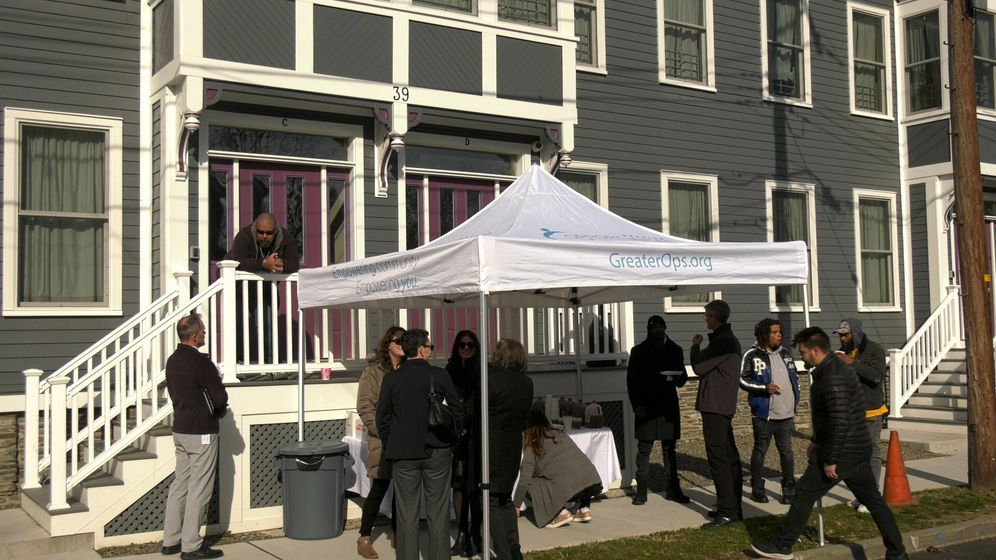Binghamton Housing Assistance Programs to Know About navigating the maze of housing options and support can feel overwhelming, especially for those seeking financial help or repairs for their homes. Luckily, in Binghamton, a variety of resources exist to ease the burden. Whether you’re a homeowner facing unexpected repairs, a renter looking for affordable housing, or someone in need of emergency aid, Binghamton housing assistance programs offer a beacon of hope. These initiatives are designed to improve living conditions, support vulnerable populations, and help residents stay securely housed.
This comprehensive guide delves into the myriad Binghamton housing assistance programs available, highlighting eligibility criteria, types of assistance, and how to apply. By the end, you’ll have a solid understanding of the support landscape and feel empowered to tap into the right resources for your housing needs.

Understanding Binghamton Housing Assistance Programs
At their essence, Binghamton housing assistance programs encompass a broad spectrum of services aimed at helping residents secure and maintain stable housing. These programs are often funded and managed by government agencies, nonprofits, and community organizations working together to address housing challenges in the region.
The scope of these programs is wide-ranging. Some provide direct financial aid for rent or mortgage payments, others focus on home repairs and rehabilitation, while several work toward increasing access to affordable housing units. Certain programs target specific groups such as seniors, veterans, low-income families, or individuals with disabilities.
The collective goal of these initiatives is to foster thriving neighborhoods by preventing homelessness, encouraging homeownership, and enhancing housing quality.
Types of Binghamton Housing Assistance Programs
Rental Assistance Programs
One of the most critical forms of support available is rental assistance. These programs help tenants who are struggling to pay rent due to financial hardship. By providing subsidies or direct payments to landlords, these initiatives keep families in their homes and prevent evictions.
The Section 8 Housing Choice Voucher program is a prominent example, enabling eligible low-income families to find affordable rental units in the private market. Additionally, local agencies may offer emergency rental assistance grants for residents facing temporary financial crises.
Home Repair and Rehabilitation Grants
Homeownership comes with the responsibility of maintenance and repairs, which can sometimes be financially prohibitive. To address this, Binghamton housing assistance programs include grants and loans dedicated to repairing and rehabilitating homes.
These funds often cover critical repairs such as fixing roofs, updating electrical systems, repairing plumbing, and improving heating and cooling efficiency. Programs like the Community Development Block Grant (CDBG) provide funding that supports these efforts, especially for low- to moderate-income homeowners.
Affordable Housing Development and Support
Expanding the supply of affordable housing is a long-term strategy to combat housing insecurity. Various nonprofit organizations and government bodies collaborate to build, renovate, and manage affordable housing units in Binghamton.
Programs under this category may offer down payment assistance, subsidized housing, or cooperative housing opportunities. They ensure that families and individuals have access to quality homes within their financial reach.
Emergency Housing Assistance
Unforeseen emergencies such as natural disasters, fires, or sudden financial loss can lead to housing instability. Emergency housing assistance programs are designed to provide immediate support in these situations.
Assistance can include short-term shelter, financial aid for urgent repairs, or funds to cover temporary housing costs. These programs work closely with social services to provide comprehensive aid.
Homebuyer Assistance Programs
For those aspiring to own a home in Binghamton, several programs offer financial and educational support. These include down payment assistance, favorable mortgage terms, and homebuyer education courses.
By lowering the barriers to entry, these programs promote sustainable homeownership and help diversify the housing market.
Spotlight on Key Binghamton Housing Assistance Programs
Binghamton Housing Authority (BHA)
The BHA is a cornerstone institution in the city’s housing landscape. It administers various programs, including the Section 8 voucher program and public housing developments. The BHA’s mission is to provide safe, decent, and affordable housing for low-income residents.
Community Development Block Grant (CDBG) Program
Funded by the U.S. Department of Housing and Urban Development (HUD), the CDBG program channels federal dollars into local projects. These projects often focus on housing rehabilitation, infrastructure improvements, and community revitalization, especially in low-income neighborhoods.
Broome County Office for Aging Housing Services
Recognizing the unique needs of senior residents, this office offers assistance tailored to older adults. Services include home repair grants, energy assistance, and support for aging in place.
Habitat for Humanity of Broome County
A nonprofit with a global presence, Habitat for Humanity operates locally to build and rehabilitate homes for low-income families. The organization offers affordable homeownership opportunities and engages volunteers in construction projects.
How to Access Binghamton Housing Assistance Programs
The application process varies by program, but some general steps apply across the board:
- Research: Identify which Binghamton housing assistance programs fit your needs. Official websites and local housing agencies provide program details.
- Gather Documentation: Typical requirements include proof of income, identification, property ownership or rental agreements, and sometimes medical or veteran status documentation.
- Home Inspection: For repair or rehabilitation grants, an inspection may be required to assess the property’s condition.
- Application Submission: Complete applications carefully and submit before deadlines. Keep copies for your records.
- Follow-up: Stay in touch with program administrators for updates and to provide any additional information requested.
Eligibility Criteria: What You Need to Know
Eligibility for Binghamton housing assistance programs often hinges on several factors:
- Income Level: Most programs serve low- to moderate-income households, typically defined as earning below 80% of the Area Median Income (AMI).
- Residency: Applicants usually must live in Binghamton or Broome County.
- Property Ownership or Rental Status: Some grants require that the applicant owns the property; others assist renters.
- Special Categories: Seniors, veterans, disabled persons, and families with children may have access to specialized programs.
Understanding your eligibility before applying can save time and improve your chances of success.
The Importance of Housing Stability in Binghamton
Housing stability is foundational to personal and community well-being. Access to reliable and affordable housing leads to better health outcomes, increased educational attainment, and stronger local economies.
Binghamton housing assistance programs play a pivotal role in reducing homelessness and housing insecurity. By providing financial resources, technical support, and educational tools, these programs empower residents to maintain safe and healthy homes.
Overcoming Barriers to Housing Assistance
Despite the availability of many programs, barriers remain. Lack of awareness, complicated application processes, and limited funding can prevent eligible residents from accessing aid.
Community outreach and education are crucial. Local nonprofits and housing counselors often provide guidance and advocacy to help applicants navigate these challenges.
Integrating Energy Efficiency and Sustainability
Many Binghamton housing assistance programs now incorporate energy efficiency and sustainability into their objectives. Upgrading homes with insulation, energy-efficient windows, and modern HVAC systems not only reduces utility costs but also minimizes environmental impact.
Programs offering grants or loans for green home improvements contribute to long-term savings and healthier living environments.
Success Stories: Real Impact of Housing Assistance
Numerous Binghamton residents have transformed their living conditions thanks to these programs. From young families moving into their first affordable homes to seniors repairing aging houses, the impact is tangible.
These success stories demonstrate the power of well-structured Binghamton housing assistance programs in creating stable, vibrant communities.
Looking Ahead: The Future of Housing Assistance in Binghamton
As housing needs evolve, so too will the landscape of assistance programs. Emerging challenges such as rising housing costs, demographic shifts, and climate change necessitate innovative solutions.
Stakeholders continue to explore partnerships, technology integration, and policy reforms to expand and enhance the effectiveness of housing support in Binghamton.
Final Thoughts
For those facing housing challenges, knowledge is power. The breadth of Binghamton housing assistance programs offers a wealth of opportunities to secure, maintain, and improve your home. Whether you need rental help, repair grants, or homebuyer support, Binghamton’s network of resources is here to assist.
By taking proactive steps—researching programs, preparing your documents, and reaching out for help—you can unlock the door to a more secure and comfortable housing future. The community stands ready to support you every step of the way.






